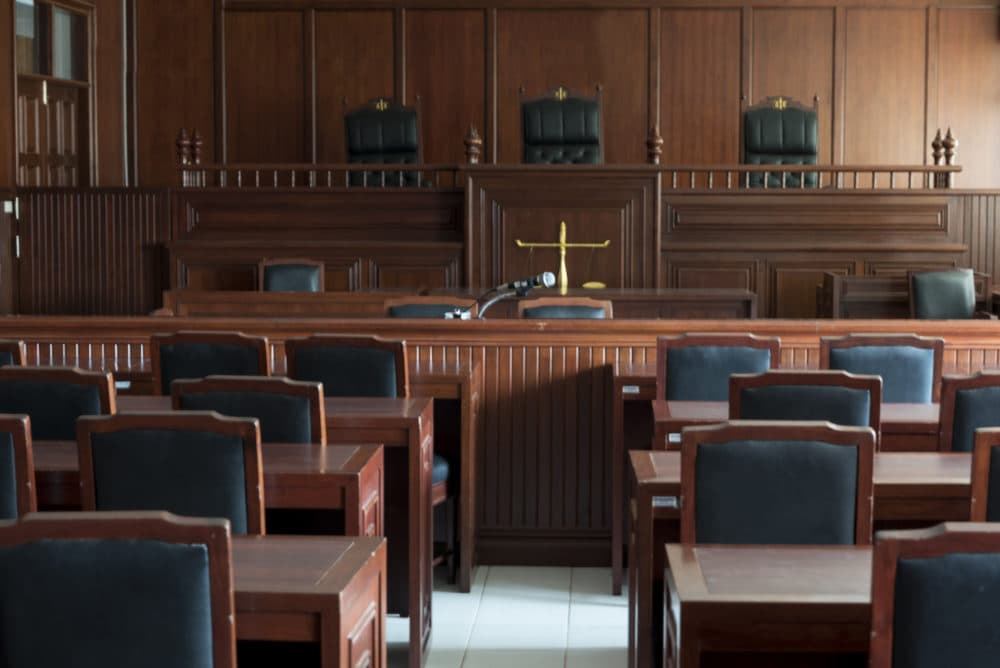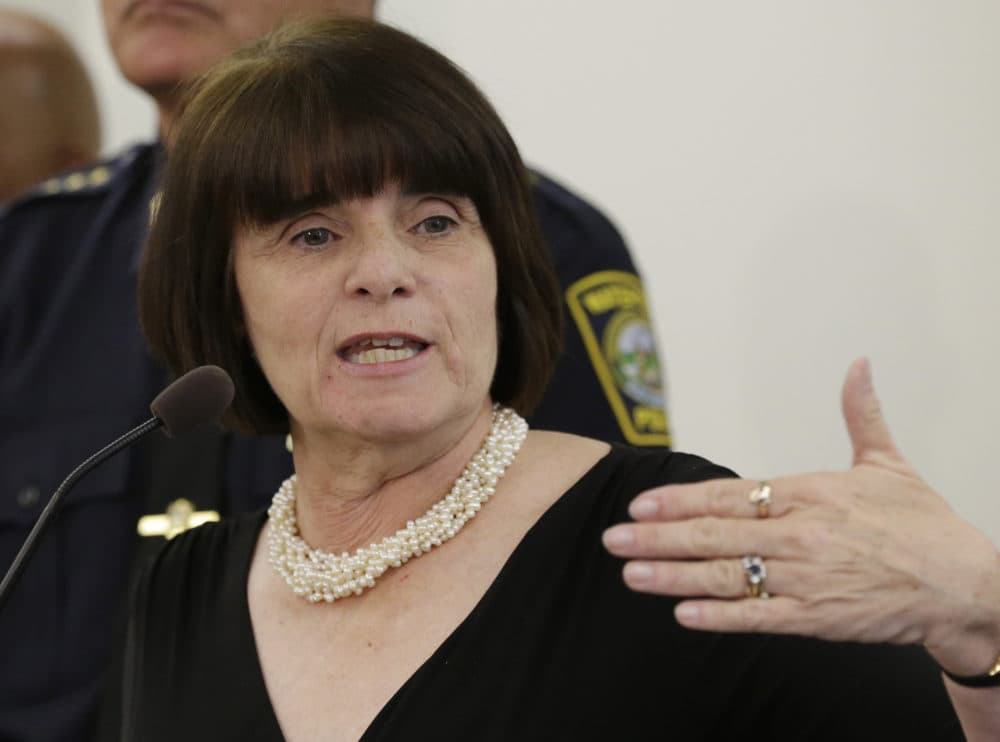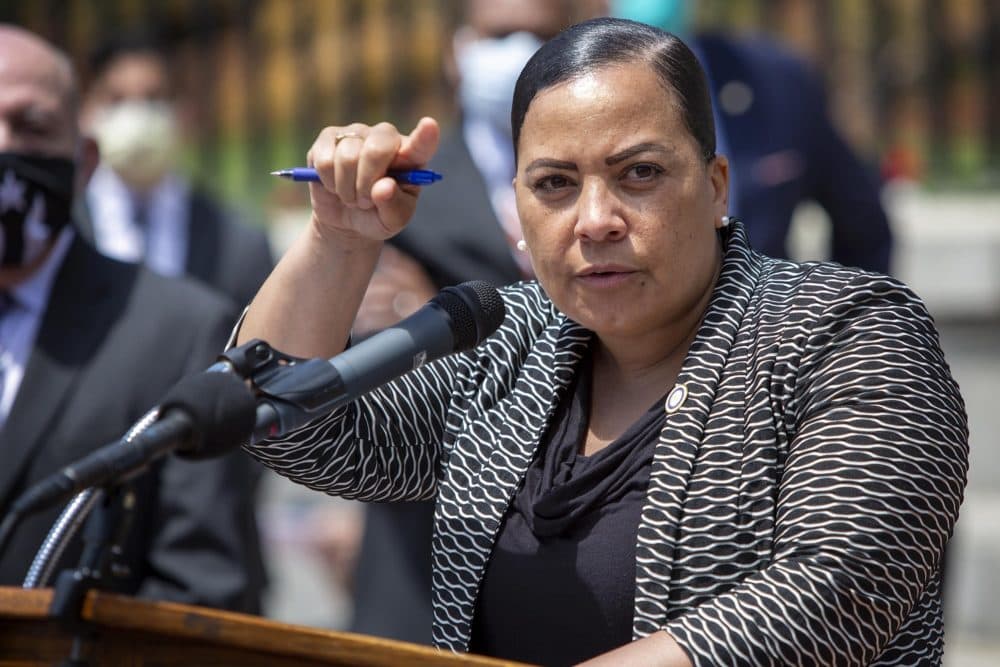Advertisement
Why This Group Wants Every DA Office In Mass. To Have A 'Conviction Integrity Unit'

What happens when there's a complaint of a wrongful conviction? If there is a miscarriage of justice, how do prosecutors prevent it from happening again?
Many district attorney's offices in Massachusetts have various ways of handling complaints and ensuring past convictions are correct. However, a new guide from a group that has been looking into these questions has put out a series of recommendations to improve and streamline the process.
The main recommendation is that every prosecutor's office should have an independent unit to review claims of wrongful convictions and miscarriages of justice.
"There are many, many people who are wrongfully imprisoned. This is recognized as a big problem. The question is how do you go about assessing, evaluating these cases..."
Richard Cole
Since 2018, the Massachusetts Bar Association's Conviction Integrity Working Group has been meeting to look into how prosecutors deal with complaints and mistakes. The group includes defense attorneys, advocates, researchers, a former judge, and prosecutors.
Civil rights attorney Richard Cole, one of the group's co-chairs, says the newly issued guide urges all 11 district attorneys in Massachusetts to have a process to independently review questions about convictions and the administration of justice.
"There are many, many people who are wrongfully imprisoned. This is recognized as a big problem," Cole said. "The question is how do you go about assessing, evaluating these cases, which can be very complicated assessments. How do you do that?"
Among the more than three dozen recommendations in the 57-page guide is that each Massachusetts district attorney have a transparent process where complaints can be filed and investigated and that the DAs collect data and share it with other prosecutors. That data, Cole says, might include things such as the latest research on the reliability of forensic evidence. On questions about the credibility of witnesses, it suggests the creation of a statewide “Law Enforcement Misconduct Database" that would report misconduct to prosecutors and defense attorneys.
Advertisement
"Many cases are very complex so it takes a lot of work to figure out what happened, why it happened, how it happened, and then educate your staff so that they understand the red flags and avoid them in the future," Cole said. "Then this could be communicated with the other [DA's] offices as to what was learned from that experience."
Middlesex County DA Marian Ryan says the new guide will improve accountability and allow prosecutors to learn from mistakes.

"After something bad happens in a case, people often want to just put it behind them," Ryan said. "But we have an obligation to make sure this isn't happening, make sure there isn't anybody else who's been impacted by this. Just like with airplane pilots and surgeons, you're supposed to drill down and figure out how did this happen and how do we make it not happen again."
The guide also recommends that prosecutors make their complaint process available to defense attorneys and those incarcerated, making sure it is accessible online and in jails and prisons. The group says the guide is designed as a tool for prosecutors and some of its recommendations would require collaboration with other state agencies.
“Over the last two years, my office has had the privilege of co-leading this group, which has worked diligently to provide a roadmap for prosecutors across the state to ensure their conviction integrity programs are effective and robust," said a statement from state Attorney General Maura Healey. "This is just a start — we are committed to continually enhancing our integrity practices, and we look forward to ongoing collaboration with the district attorneys and innocence community to ensure justice and public confidence in our court system.”
Some Massachusetts district attorneys already have designated staff to review convictions and allegations of miscarriages of justice. Some are in the process of creating systems to do so and some say they will implement many of the guide's recommendations.
The largest effort is in Suffolk County, where, in addition to a conviction integrity program that was established under a prior district attorney, DA Rachael Rollins has created an Integrity Review Bureau. The bureau includes a database designed to notify defense attorneys about law enforcement witnesses who have had history of misconduct and a pilot program that reviews whether certain legal sentences have "produced unjust results." Rollins office is currently reviewing more than 100 cases as part of its conviction integrity program. The office recently sent out "inmate applications" for those incarcerated to apply to have their cases reviewed if they were handled in Suffolk County. The office has received three dozen applications so far.

"DA Rollins believes that with all the power prosecutors and law enforcement have, looking back to make sure a case was handled correctly is a critical and important step in rebuilding faith and trust in the criminal legal system," her office wrote in a statement.
In Middlesex County, DA Ryan's office says 34 cases have been reviewed and one conviction has been vacated since a conviction integrity unit was created in the office in 2013. A dozen cases have been referred to post-conviction testing.
Northwestern DA David Sullivan's office — which also was represented on the working group — says reviewing complaints about injustice are a priority. The office has a conviction integrity committee made up of prosecutors and a retired judge. The committee is currently reviewing requests for new DNA testing in four murder cases.
In Norfolk County, District Attorney Michael Morrissey created a Conviction Integrity Committee in 2019. That committee is not currently reviewing any cases, but overturned a conviction last year. Morrissey's office points out that it has a designated attorney to handle cases that were potentially compromised in the state's drug lab scandals where former chemists Annie Dookhan and Sonja Farak were convicted of tampering with drug evidence. The office has vacated thousands of cases involving evidence tested by the chemists.
Since 1989, national statistics show that 75 people in the state have been exonerated. That number only includes those whose convictions were overturned because of new evidence of innocence, not those who were cleared on appeal or mass exonerations, such as the convictions vacated because of the drug lab scandals.
Darrell Jones, who was released in 2017 after being imprisoned for more than three decades, says there needs to be a greater sense of urgency. He says those wrongfully imprisoned get frustrated by the often slow process of reforms.
"We have to be a little bit more immediate about what we're doing as well. I just have a problem with the way it goes out here — the time span," Jones said. "Especially with all the years I spent in prison watching how many times we have approached attacking this criminal justice system."
The working group hopes the new guide will become a national model and says it will continue to monitor how conviction integrity units are operating in the state.
"Our working group members are from very vastly different perspectives — from prosecutors to defense attorneys to innocence attorneys," attorney Richard Cole said. "Regardless, we were able to navigate all those differences and achieve consensus on many best practice recommendations. That was both remarkable and inspiring and we are determined to use this guide we've drafted and for our learning to be a resource."
This segment aired on April 6, 2021.
